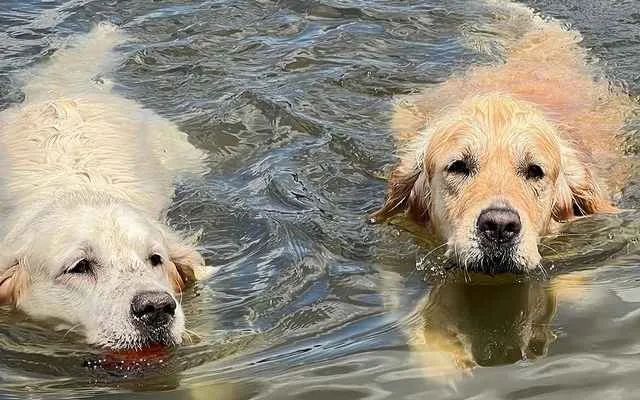With the arrival of summer, many people prepare for their vacations at the beach with their pets. These plans are very fun and beneficial for families, but you have to be very careful, as saltwater poisoning in dogs is very dangerous.
Is it safe for dogs to go to the beach?
When taking your dog to the beach, you should keep certain tips in mind:
- Before leaving home, you should prepare a bag with all your pet's belongings: the pet's license, food and water bowl, water, food and snacks, an umbrella, toys, bags to pick up their needs, sunscreen for dogs, etc.
- Choose a beach where you are sure that dogs are welcome. If not, you could face a fine.
- Once at the beach, be in a place where you know your pet will not bother other people.
- Keep an eye on your dog. Even if it is used to the sea, accidents can happen.
- Control the intensity of his exercise. Some dogs do not stop until their body says enough, for very negative reasons. For example, a heat stroke.
If you take all these considerations into account, both you and your furry friend will have a great time.
Moreover, if your pet is a dog that likes water, all the more reason.
However, you have to be cautious about one more thing: possible saltwater poisoning in dogs.
Saltwater poisoning in dogs
Sea water can be very harmful to the health of dogs. Drinking salt water will cause some symptoms that you should pay attention to:
- Vomiting
- Lethargy
- Diarrhea
- Loss of appetite
- Excessive thirst
- Convulsions
- Tremors
- Difficulty walking
- Possible kidney damage
- Coma
It can even lead to death if the problem is not detected in time.
However, the most obvious sign of saltwater poisoning in dogs is that they will begin to exhibit strange behavior.
This is because the sodium makes the dog confused or slow to respond.
What to do if your dog drinks saltwater?
In the case of symptoms of poisoning, you should go to the veterinarian so that he can treat the problem in time.
However, it is best to be vigilant and prevent the dog from swallowing saltwater.
How do I stop my dog from drinking saltwater?
Very easy: by making fresh (sweet) water available to him at all times. You must show him where it is as soon as you arrive at the beach, so that he knows where to go if he is thirsty.
Your dog will start panting after a long period of exercise, losing a lot of water. Therefore, he will need to hydrate himself and, obviously, if he can't find fresh water, he will drink from the sea.
Algae poisoning in dogs
The American Kennel Club warns of the importance of not confusing seawater poisoning with algae poisoning. Specifically, they mention blue-green algae.
This algae is usually found on some sides or ponds and is actually a bacteria that clumps together and appears in stagnant water. However, they are not visible to the eye.
What is very evident is their strong odor, which can make animals feel attracted to them and eat them. This would provoke an intoxication to which it is necessary to know how to react immediately.
To do so, veterinarians indicate that the best thing to do is to rinse the animal's mouth with clean water and go to the veterinarian immediately.
Diarrhea

